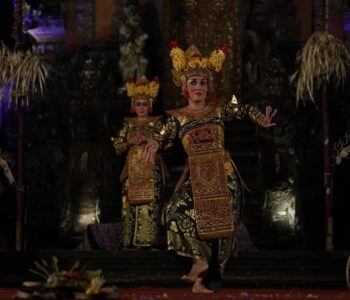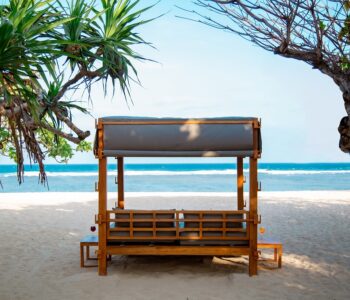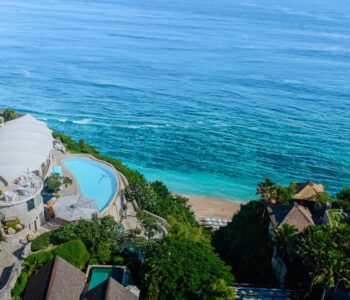Throwing a nostalgic glimpse back towards the island of Java, thankful for the opportunity and people I met there, I witnessed the jagged terrain from a far for the first time through the clouds as I made my way across the Bali Strait, towards Gilimanuk.
I couldn’t help but cast my mind back 4 years. To watching the White Cliffs of Dover disappear into the fog as I made my maiden voyage across the English Channel to France. Back then we were two men driven by a few simple ideals and a fearless naivety. Then, 23 years old, the plan was to try to re define outdoor adventure and complete the journey we had teasingly, humorously dubbed “the joke that got out of hand”. The joke that had found us on a boat going head first towards uncertainty, in order to show that you didn’t have to be special to achieve something special, indeed you merely had to commit and be willing to pay the price, whether it be mental or physical. You didn’t have to be a survival expert, ex-military or an endurance athlete to achieve something like this, you could indeed be painfully normal in every way. Our plan? To walk to Australia.
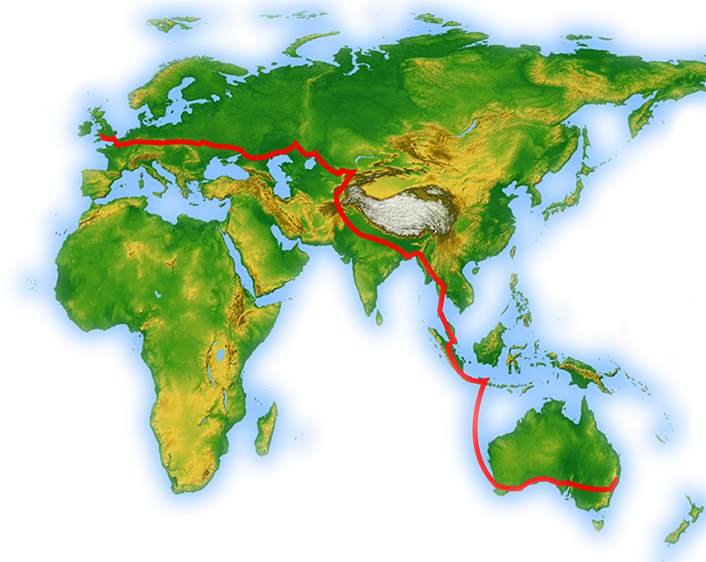
An idea born of curiosity and a craving for adventure, we planned to travel from Cardiff, South Wales, UK to Cardiff, New South Wales, Australia… on foot, as the crow flies 10,000 miles. 4 years in and having been solo since my friend left to go home in Kyrgyzstan, I wouldn’t be able to tell you how many kilometres I’ve done. The route has taken twists and turns along the way, winding around unpassable mountain ranges and forbidden border crossings. We decided that if we were going to do this we wanted to raise money for worthwhile causes. Causes that like Borderwalk, the name we would later give the walk, were truly global in their nature. The two charities we picked were WaterAid and the Marine Conservation Society. Two charities and causes that truly are important no matter which border you live behind. From this trip I’ve learnt first-hand the need for clean sustainable water, as it’s a daily struggle for me during the walk and have also witnessed the abuse of pollution in our lakes, streams and rivers, not just effecting our health and future but also the health and future of other animals and their ecosystems too, as I would find in Bali.
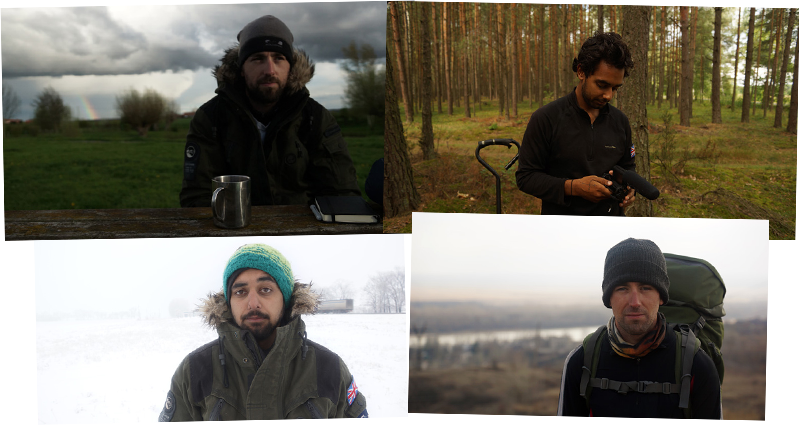
As I made my way onto steady ground off the ferry, finally arriving in Bali, I was tugged away from any feeling of nostalgia as I was confronted with the burden of any new piece of land or country I cross over into, the feeling of having to immediately size up the place. Understand the way things work, the religions, the customs, the language, the food and even the animals. Everything that makes that place, that place and not the place before it. This is a common occurrence on Borderwalk. Having walked across Europe, a familiar beast, into the less familiar territories of Asia, I’ve had to learn new languages, new customs and become flexible in many aspects of my everyday life.
 An iconic site in West Bali, where people arrive
An iconic site in West Bali, where people arrive
One question that people who hear my story often ask is, “what are the highlights of your trip?” My answer to this is: the people I’ve met along the way, no matter which country. This journey would not be possible without friends or friends and even complete strangers I meet literally on the road being generous with their time, effort or money and Bali was no exception. Whilst walking across the island I was asked often if I needed anything, if I needed food or water or a place to stay for the night. It was if the local people had an invested interest in my wellbeing, and when they found out what I was doing, I would be told about the struggle of water in Bali also. Whilst there, I wasn’t subjected to the hardship of finding clean water to drink on a daily basis because of the kindness of the local people around me, but I would find out through them that there is a serious and worsening issue of fresh water in Bali and later I would find out that according to government figures “75-80% of Bali’s watersheds are now declared dry and water tables have dropped by 50m in less than 10 years”. Not only that but wells are drying up and there are ever growing instances of contamination of fresh water by salt water, effecting the whole ecology of Bali. They would talk to me about this, share stories and before leaving even offer me rupiah for tea or roti (bread) for my journey east.
On the island I was stopped many times and asked if I needed a ride. On one of my breaks from Negara to Pulukan, enjoying some Mie Goreng on the side of the road, I was asked if I wanted a lift on the back of a bicycle, I was told “the hotel is far”. I told the gentleman that I was indeed going that way, but I was going on foot. After a few moments of him insisting, as it was getting dark and cloudy and me politely declining, he smiled, wished me luck and carried on cycling. Later that night I would pull up to a candle lit restaurant and ask if there was space for me to stay the night there and who was sat there? – the same man on the bicycle, smiling in shock, shouting “Jalan kaki!” (walking in Bahasa Indonesian) to the restaurant staff. In Kazakhstan this was a constant throughout the country, drivers on the Kazakh Steppe would stop, look in disbelief and tell me I would die or be attacked by wolves. With gaps between towns sometimes as far as 400kms they were worried for my safety and they would tell me stories of people getting lost or of children being dragged off from small towns by wolves. In Kyrgyzstan, I even met an elderly lady up a desolate mountain who lived in a caravan there on the side of the road, she invited me in to warm up with some tea, and showed me the axe she uses to fight off wolves.
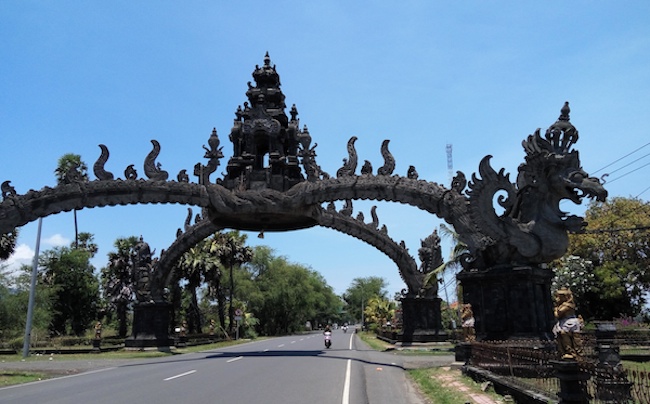
from the port of Java.
The immediate realisation of Bali was that I was no longer in a predominantly Muslim area, something I had come to be used to. Having walked through Muslim countries for at least 2 years, covering countries like Kazakhstan, Afghanistan and Malaysia, I’d become used to hearing the call to prayer often and in Java I had even been welcomed into Mosques to rest for the evening. With Bali only having a small percentage of Muslims I was welcomed by large Hindu and Buddhist statues. Every corner of public spaces is beautifully decorated with religious, intricate spirits and gods, wrapped in brightly coloured material, and as I walked down the streets and through small towns it was as if they were my walking companions for the day. Every bridge and every building had a mischievous carving or figure hanging on the side of its roof tops, ledges and in the corners of its grounds. It was truly unlike any part of Indonesia I’d seen so far on the road.
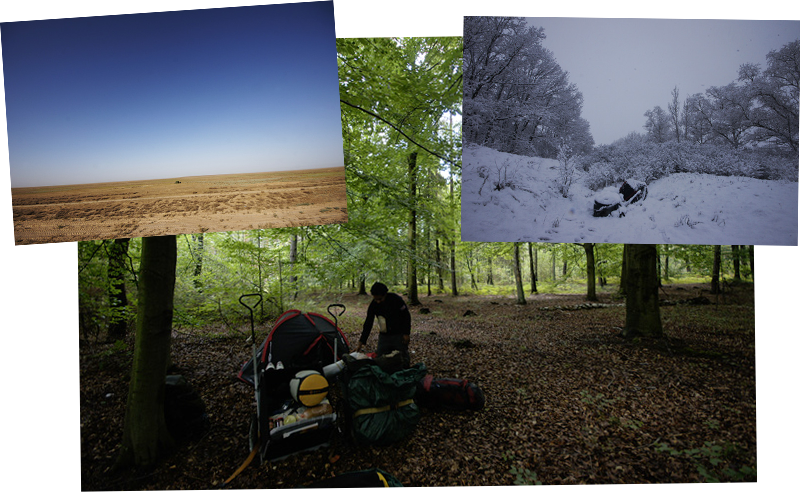
With varying degrees, this generosity, like the generosity extended to me in Bali, is something I have found a constant across the world on my journey. The kindness from complete strangers who have nothing to gain from helping me. Do not misunderstand me, I’m aware that things can go wrong. In Afghanistan 7 men with AK47’s took me at gun point in the middle of the night and bundled me into a 4×4, a soldier even stole a spare emergency phone I had in my bag and deleted the number of the British Embassy in the phone he left me. In India another opportunist stole my phone whilst I slept. These instances are far and few between, but for each one that happened there are 10 times the amount of instances of other people stepping up and refusing to have their country defined by a single negative act. In Poland when I was walking with Kieran, our belongings were stolen and by the evening the Polish Police had found everything. By the next day we had emails from all over the country saying that all they wanted was for our memories of Poland to be good ones, so for us to tell them where we were, so they could bring us warm food and drinks on the road and if we needed a place to stay to let them know.
It’s from instances like those I glimmer a faint answer to that age old question, who do you want to be in life? If Borderwalk has taught me anything (and it has taught me countless lessons) it’s to decide who I want to be, just make that decision, the type of life you want to have and the type of person you want to be regarded as. Take risks, not stupid ones, but take chances and opportunities when they are afforded to you, even if you don’t know the proper way to approach them yet, because without those and without things going wrong a little, you’ll never – 1. Move forward and 2. have a chance to experience the completely surreal. Like waking up in a caravan on the side of a lake in Poland with the “Polish Bear Grylls” outside making you breakfast. Or as a British born Asian being invited to an ‘End of the World Party’ by a member of the KKK in Ukraine and having a great time. Or A Russian man (and now friend) driving nearly 1000kms to have lunch with you and give you a hand-built cart for your stuff. Even walking across Singapore, with 13 other people who got in contact and said they wanted to join you for the day. And in Bali, going from camping with ants and other insects beside the road, to being invited indoors in a lovely hotel run by kind people. Those and many many more are all experiences that have come from chances I’ve been given and taken, just by deciding what type of experience I want this journey to be and what type of person I want to be at the end of it. And yes there are certainly things you shouldn’t do in life and you will fail at things you want to achieve at, at least once. I’ve failed every day for over 4 years, each day with the delusional goal of getting to Australia and then my body giving up 40kms down the road. But if I never took those chances and accepted the help to get back up from those people in Bali and other places along the way after numerous failures, I wouldn’t be sat here in Perth writing this and planning the final leg of the journey across Australia to Cardiff, New South Wales.
Visit www.borderwalk.co.uk to learn more.
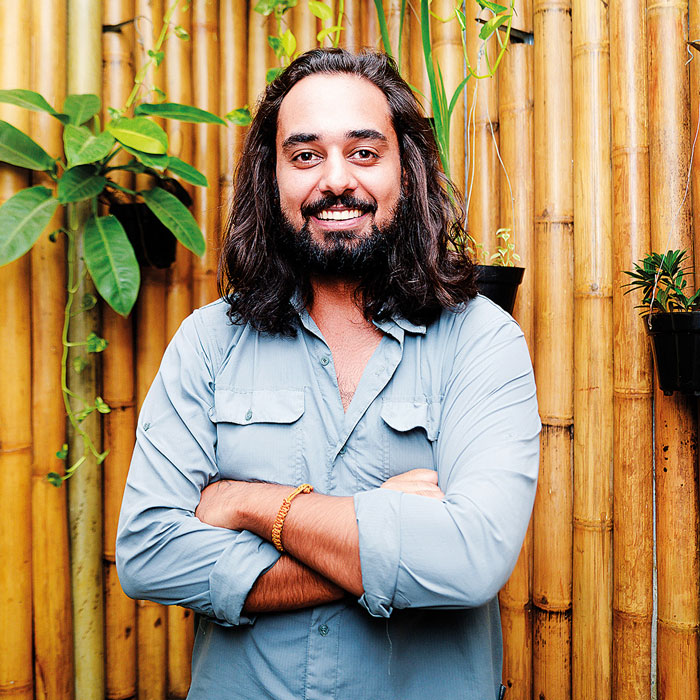 In 2012, Arjun Bhogal challenged himself to travel from his hometown in Cardiff, South Wales, United Kingdom, to New South Wales in Australia. Conventional traveller he was not. Instead of getting on the plane, he chose to travel by foot, turning his planned trip into a project called ‘Borderwalk’, producing a documentary that highlights the global need for clean water. Last month, after more than four years, Arjun arrived in Bali, roughly 5,000 kilometres away from his final destination.
In 2012, Arjun Bhogal challenged himself to travel from his hometown in Cardiff, South Wales, United Kingdom, to New South Wales in Australia. Conventional traveller he was not. Instead of getting on the plane, he chose to travel by foot, turning his planned trip into a project called ‘Borderwalk’, producing a documentary that highlights the global need for clean water. Last month, after more than four years, Arjun arrived in Bali, roughly 5,000 kilometres away from his final destination.



